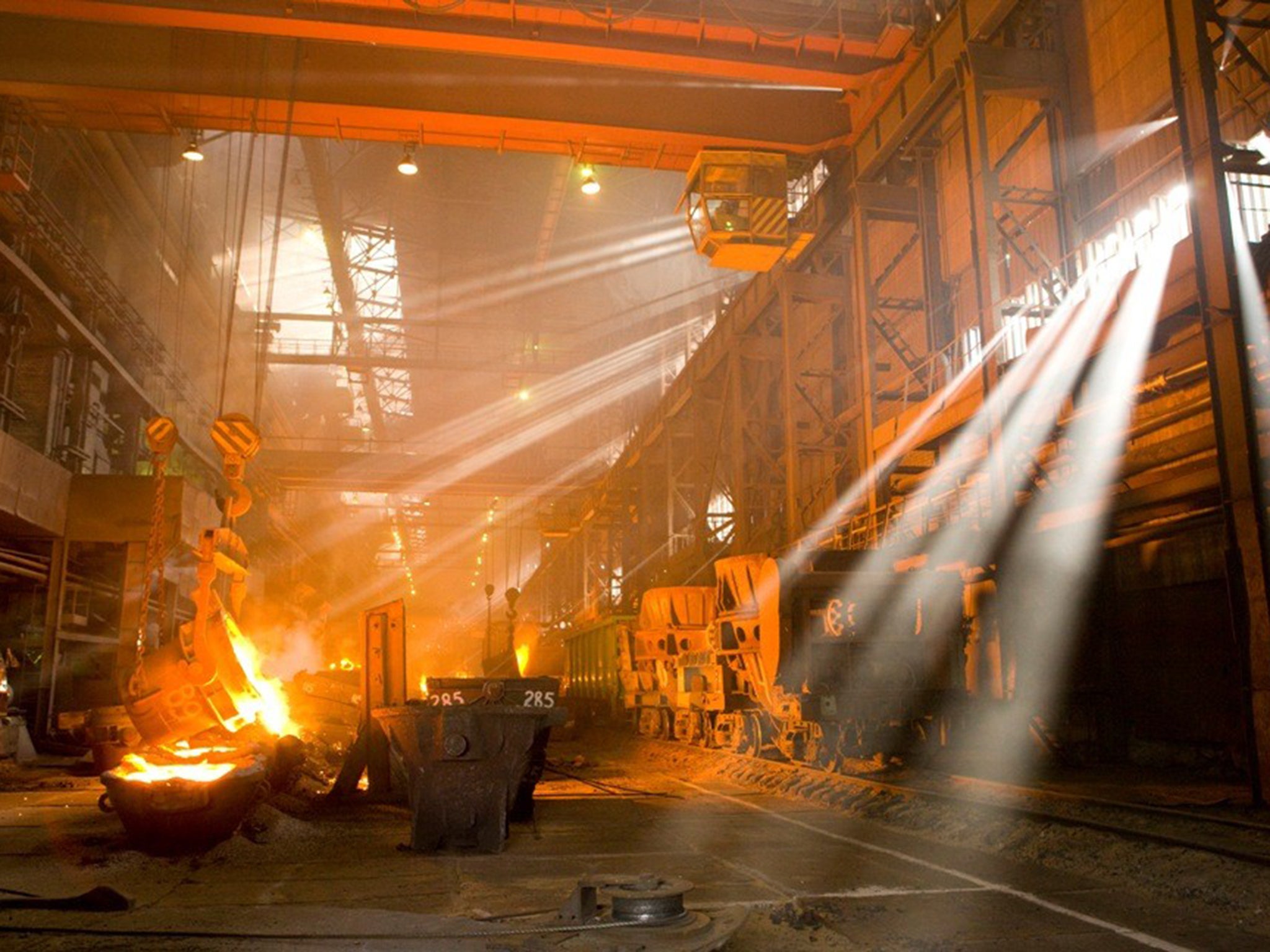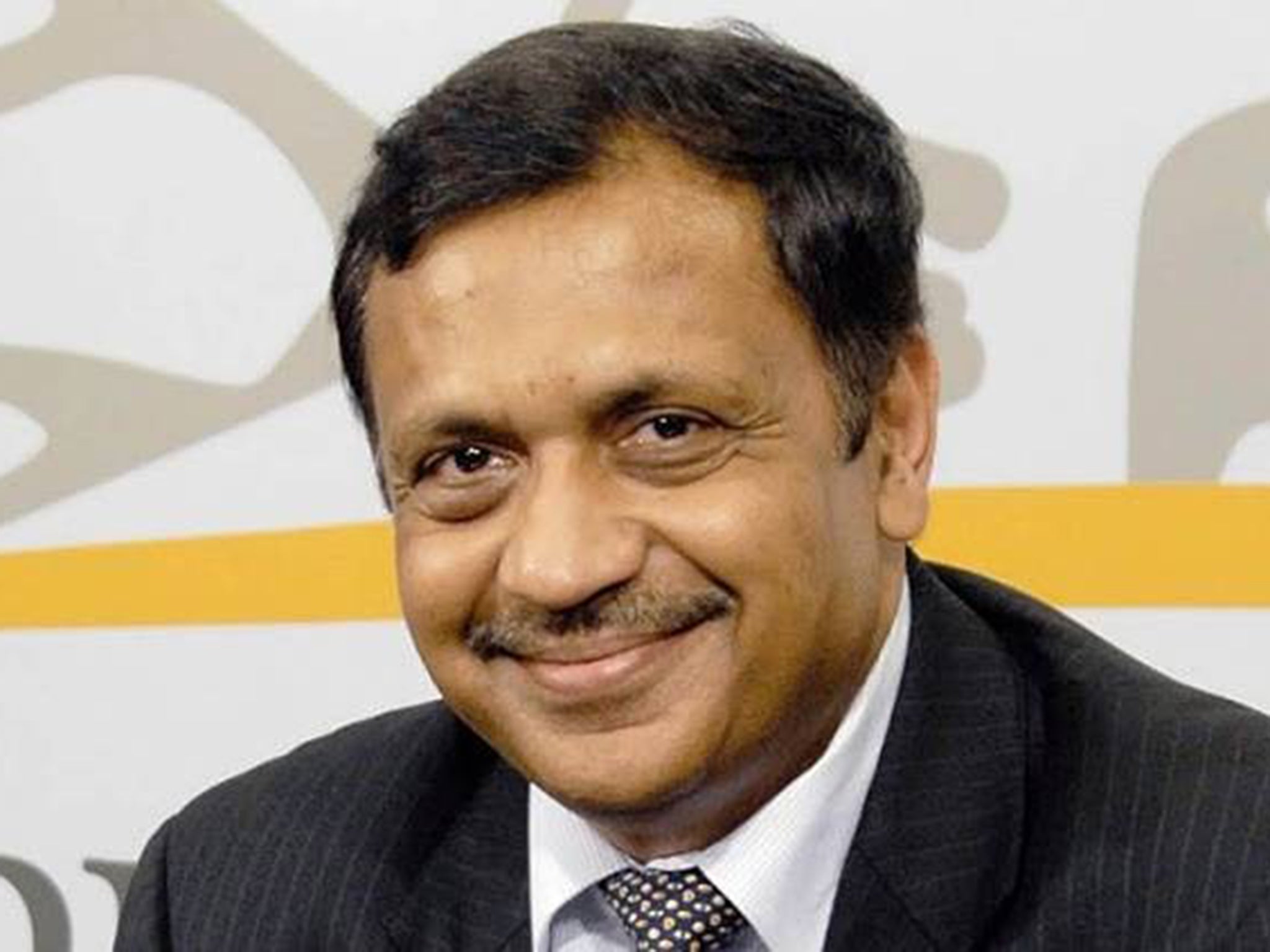Pramod Agarwal: Two lavish weddings and a very acrimonious divorce
The charmed life of Indian tycoon Pramod Agarwal is under threat from a bitter business dispute over a Brazilian mine

Your support helps us to tell the story
From reproductive rights to climate change to Big Tech, The Independent is on the ground when the story is developing. Whether it's investigating the financials of Elon Musk's pro-Trump PAC or producing our latest documentary, 'The A Word', which shines a light on the American women fighting for reproductive rights, we know how important it is to parse out the facts from the messaging.
At such a critical moment in US history, we need reporters on the ground. Your donation allows us to keep sending journalists to speak to both sides of the story.
The Independent is trusted by Americans across the entire political spectrum. And unlike many other quality news outlets, we choose not to lock Americans out of our reporting and analysis with paywalls. We believe quality journalism should be available to everyone, paid for by those who can afford it.
Your support makes all the difference.One of London’s super-rich, Pramod Agarwal lives the most lavish of lifestyles.
Home is a £38m property in Cornwall Terrace overlooking Regent’s Park. The Indian-born tycoon drives a Bentley, flies around the world in a private jet and recently spent millions of pounds on the Italian wedding of his daughter, Ritika, at which Florence and the Machine and the Bollywood star, Pritam, provided the entertainment.
More than 800 guests attended the festivities in Puglia, including 20 of Mr Agarwal’s bankers – from Royal Bank of Canada, Banque Cantonale Vaudoise, Credit Suisse, ABN Amro, BNP Paribas, State Bank of India, Canara, Investec and Intesa, among others. So too did members of the Mittal and Hinduja families, with whom Mr Argarwal is friends.
Grand weddings are a family tradition. Three years ago, Mr Agarwal hosted a multimillion-pound wedding for his other daughter, Vinita, at Venice’s San Clemente Palace, with celebrations created by Franco Dragone, the Italian theatre director who works with Cirque du Soleil, and starring the singer Shakira.

Apart from the headline-grabbing weddings, Mr Agarwal and his mining group Zamin have a low profile on the UK corporate scene, although he came close to listing the company a few years ago. But the tycoon is now in the spotlight because of a complex legal battle that he has initiated against Eurasian Resources Group – the former ENRC mining group owned by three Kazakh oligarchs – which is heading for the High Court early next year.
ENRC, which was delisted from the London Stock Exchange in 2013 amid claims of corruption, is still the subject of a Serious Fraud Office inquiry into fraud, bribery and corruption claims relating to activities of the company and its subsidiary in Africa and Kazakhstan. The claims have been denied by ENRC.
The Zamin versus ENRC dispute promises to be one of the most unusual and juicy cases seen in the capital for some time because it involves allegations of improper conduct by federal and state courts in foreign jurisdictions. The case centres on Mr Agarwal and ENRC’s joint venture involving the Bamin iron-ore project in Bahia, Brazil, based on an agreement that dates back to 2010.
Zamin is suing ENRC for $220m (£144m) after alleging that it failed to pay the final instalment to buy out Mr Agarwal’s share in the Pedra de Ferro iron ore mine; and alleges that ENRC is in default for the last payment. It claims the payment was triggered both by the award of licences to transport iron ore, and to build a port to ship it abroad, and that ENRC’s refusal to pay up is a delaying tactic motivated by poor finances.
ENRC has submitted a counter-claim against Zamin, arguing that it is owed $65m in repayment of a loan, taking its full claim to $115m. Advisers to ENRC say they are confident in their legal position and they look forward to the opportunity for their case to be heard by the court.
The battle hotted up again this week when Zamin was reported to have issued a bankruptcy petition against the Dutch division of ENRC, which holds its assets outside Kazakhstan, and secured a form of freezing order over $1.7bn of assets in the Netherlands. A spokesman for Zamin was not willing to comment on the latest move.
At the heart of the dispute is an agreement between Zamin and ENRC over the Bahia mine; Zamin’s 50 per cent stake in the Bamin project was sold to the Kazakhs in September 2010 for $1bn. ENRC agreed to pay the final tranche when certain conditions were met, including the crucial government licence being granted to operate the port, deemed essential to transporting the iron-ore away from the mine.
ENRC, which has the government of Kazakhstan as a big shareholder, claims the grounds on which Zamin and other parties were granted a licence to operate a port close to the mine was acquired in “suspicious” and possibly corrupt circumstances on 19 September last year, with 15 minutes to go before their deal was due to expire. However, Zamin says that once the mine was sold to ENRC, it was solely ENRC which was in control of the licensing process. A spokesman said: “There is categorically no evidence of corruption. Furthermore, the [Brazilian] government has announced that the port will proceed. Additionally, if ENRC is disputing the licence, why [is it] proceeding with the development of the port, as was reported by the Brazilian media this week?
“It is clear that ENRC is employing a delaying tactic to avoid payment by challenging circumstances surrounding the issue of a Brazilian licence in a foreign court whilst, in Brazil, purporting to take the project forward, as is ENRC’s obligation. It is expected that the English court will enter judgment which will vindicate Zamin’s position. It is obvious, given the importance of the port to Brazil, that the project will continue to move ahead despite attempts by ENRC to avoid payment through misadventure in the English court.”
So who is Pramod Agarwal, who is taking on the Kazakhs? He is based in London but his Zamin company has offices in Sao Paulo, Montevideo, Dubai and Zug. In a rare interview two years ago with the Hindustan Times, he said: “Most of my time is taken up by my work and I am happiest doing that. I don’t fancy luxury cars though I have them, neither am I a movie buff. I love gardening and that is one of my hobbies.” A vegetarian and teetotaller, his favourite musicians include the new-age composer Jeff Clarkson.
The 60-year-old was born in Bombay although his family comes from a small village near Bhiwani, in northern India’s Haryana state. His early working years were spent as a commodities trader in Hong Kong with interests in Russia, and he ran and chaired the privately owned Gerald Metals group. Since then, Mr Agarwal has moved directly into iron ore mining, building up Zamin Ferrous into a small empire with iron ore operations in Brazil and Uruguay. According to its website, Zamin has four key production, development and exploration assets: Valentines in Uruguay and Greystone, Zamapa and Susa in Brazil –with billions of tonnes of potential resources and long-term supply relationships with Chinese, Indian and Russian steel companies.
There are other legal spats: Zamin is also being sued by a London-based mining advisory firm, Doyen Meten Advisors, for $25m relating to the alleged non-payment of contracts. The company, part of the Doyen group which also invests in some of the world’s top footballers, lodged its claim in the High Court on 22 January. Zamin said the two sides were in “advanced stages of negotiation with regard to the repayment of this commercial loan” and it was surprised Doyen had taken the matter to court. It said it would be settled “shortly”.
A court in the northern Brazilian state of Amapa recently ordered an asset freeze on Zamin’s bank accounts, covering up to $19m, as well as freezes on other properties of Zamin Ferrous iron ore operations in the state. The Brazilian public prosecutor requested the freeze in relation to allegations that the company had polluted various streams in the district, and has apportioned 60 per cent of the pollution and environmental damage to Zamin. Zamin does not dispute the claims, but Mr Agarwal’s lawyers say that the freezing order is subject to a legal challenge and argue that the claims relate to a period before the company bought the Amapa mine.

Zamin beat the commodities giant Glencore and the Russian steel-maker Severstal to buy Amapa from Anglo American last year, since when it has been hit by costly labour disputes and a falling iron-ore price. More than a dozen former miners are currently suing Zamin for loss of salaries but Zamin says the remaining tribunal claims by a “few employees… will be resolved in due course”.
On taking over Amapa in 2013, Mr Agarwal predicted that iron ore prices would rocket, but they have fallen from $128 a tonne in January 2013 to less than $70 today. Indeed, both miners have been hit by falling ore prices; ENRC’s net debt is said to have risen to more than $6bn.
In Uruguay, Zamin has just been given the go-ahead for its Valentines project, where it plans to develop a huge open-pit magnetite mine with processing and export facilities. The $3bn site has 2.5 billion tonnes of indicated and inferred iron ore deposits and is the biggest project in Uruguay’s history. Despite objections from politicians and environmentalists, the new Uruguayan President, Jose Mujica, gave his blessing to the massive project in January.
The project had been on hold since August, as the country was in the midst of passing a new mining law to allow large-scale operations. While Uruguay allowed large-scale mining last year, opposition groups are still calling for a referendum and claim the ruling went through solely because Zamin’s project would involve building a new deep-water port. Zamin says this is a major project for the group, and it is pleased to be making progress with its partners.
Meanwhile, with neither Zamin nor ENRC showing any signs of wanting to settle their Brazilian differences, it is looking to be a case of see you in court in 2016.
Join our commenting forum
Join thought-provoking conversations, follow other Independent readers and see their replies
Comments